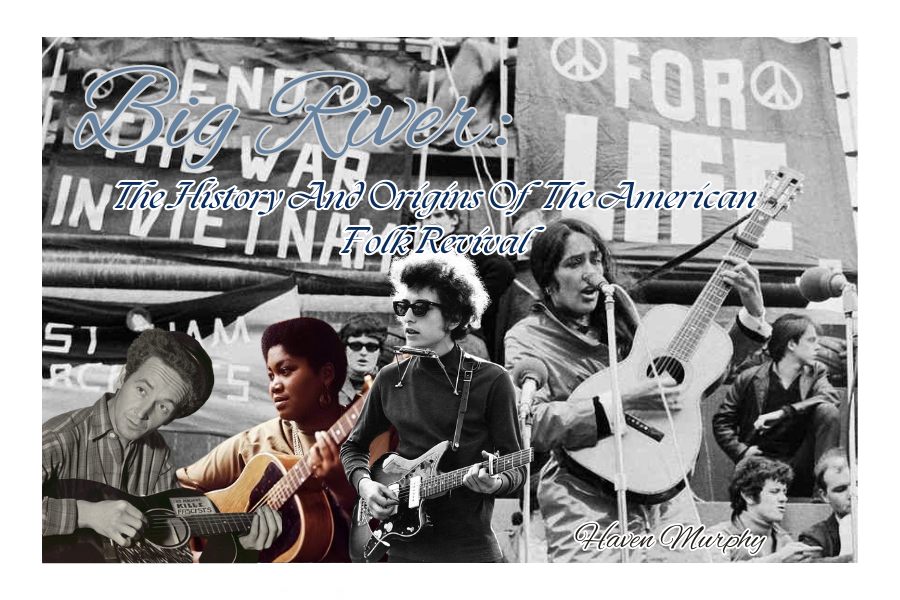On Monday, Oct. 28, Tyler Okonma, known better as his stage name Tyler, The Creator dropped his eighth studio album “CHROMAKOPIA.” Fans all over the world woke up at 6 a.m. to hear the album as it appeared on streaming services such as Spotify and Apple Music. The album’s 14 tracks amass a total playing time of 53 minutes, including numerous features and even samples of Okonma’s mother. Within only a week, the album has gathered over 200 million streams and is topping the charts across music, including Billboard, Apple and Spotify
The first track on the album, “St. Chroma” features Daniel Caesar, and has a run time of just over 3 minutes. The song begins with a sample of Okonma’s mother, Bonita Smith, which becomes a common theme throughout the rest of the songs. In this song, Okonma repeatedly chants that he is going to ‘make it out’ or in other terms, escape the cycle, while Caesar sings interlude vocals. In the background, the listener can hear load and assertive stomping, along with piano and synth. This sets the tone for the album as inspirational and welcoming for personal growth as Okanma uses his lyrics to progress through his own emotions.
“Rah Tah Tah,” the second track on the album, presents a more sireny and abrasive tune, as Okonma explains his uniqueness in comparison to those around him. He ends the song by saying this uniqueness singles him out, making him paranoid. This perfectly transitions into the third track, “Noid.”
“Noid” is the leading single for this album, and details Okonma as he worries that he is being watched. He details his lack of trust for those around him, and repeats terms like ‘running’ and ‘shadow’ to represent his need to escape from whoever is following him. Once again, the voice and advice of Bonita Smith is sampled, warning to not trust people and to maintain privacy. This then segues into rapping again, ending as Okonma nearly confronts his stalker.
“Darling, I” is the fourth song, and features Teezo Touchdown. Beginning with yet another sample from the artist’s mother, as she warns of the dangers of admitting false love. The title namesake comes from the lyrics, ‘Darling, I keep (falling in love)’ as both Tyler, The Creator and Teezo Touchdown rap and sing about how they are in a continuous cycle of falling in love, getting bored, and moving on instantly. The repetition of ‘forever is too long’ potentially symbolizes commitment issues, as portrayed in this song. Coming full circle, the track ends with more advice from Smith, claiming that ‘transparency is key.’
“Hey Jane,” a perfectly 4:00 track, details both the perspective of Okonma (referred to as ‘T’), and Jane, the woman who is carrying his child. ‘T’ begins by trying to comfort Jane, only to end up blaming himself and afraid that he will only complicate matters further. This structure is then paralleled from Jane’s perspective, as she tries to comfort ‘T’ only to end up discussing her fears. Both individuals want what is best for the other, without inconveniencing each other, which leads to an endless cycle of deflections almost as difficult as deciding on a restaurant to eat dinner at.
The following song, “I Killed You” details Okonma’s relationship with his natural hair. The title namesake becomes present in the lyrics as harmful methods of altering one’s natural hair are discussed, shortly followed by ‘I killed you.’ This angle is then flipped at 1:27 into the song, when the words, ‘I could never kill-’ are cut off and the beat switches into a more melodic, upbeat tone. Okonma then details his relationship with his hair in an appreciative and caring manner, discussing the ways in which he does care for it. This contrasts the statements and viewpoints made prior in the song, giving a sense of growth and self-love to this track.
“Judge Judy” is written from Okonma’s perspective as he meets Judy, a woman who claims to be behaving abnormally. Due to this abnormal behavior, it is seen as unfair to judge her, hence the title of the song. He believes that Judy broadens his horizons as he enjoys his time with her, but he later finds that she has taken her own life and left him a note. Judy thanks him for never judging her for who she was, leaving a very sad and melancholic ending to the song. References to Tyler, The Creator’s 2021 album, “Call Me If You Get Lost,” and more specifically the song “DOGTOOTH” can be found within the lyrics of “Judge Judy.’
If there was a competition for which “CHROMAKOPIA” song could hold the most features, “Sticky” would most certainly win. Featuring not only GloRilla and Sexxy Red, but also Lil Wayne, this track is just over 4 minutes long. A whistle tone and slightly violent imagery are used to mimic a mocking tone, similar to the content of the lyrics. The four artists work together to assert their perspectives of themselves in comparison to those around them and boast of their possessions.
“Take Your Mask Off” is contestably the most powerful song on the album, as it urges listeners to take their own masks off, and be true to themselves. LaToiya Williams appears on this track, and Daniel Caesar makes his second “CHROMAKOPIA” appearance. The song employs an upbeat and almost-whimsical melody as it calls out those who hide away and waste their potential with the intentions of seemingly becoming more tough. Okanma then transitions into the stories of many situations where ‘taking the mask off’ would symbolize a person’s acceptance and acknowledgement of who they really are. The whole baseline for the lyricism is truly that hiding yourself away in fear of how the world will view you will only harm you, and the song ends with the artists urging the audience to remove their masks.
“Tomorrow” has a more melancholic and sad tone to it, as Okanma sings about his feelings of growing older. A sample of Smith talking about her future grandchildren appears at the beginning of the song, setting the theme for everything to follow. In contrast to the rest of the album, this song has a very quiet, whisper-like level of rapping, which transitions into a normal tone later in the song. It is mentioned how many of Okanma’s friends and peers have settled down in life, whether that involves getting married, starting a family, or both. He reveals that he feels behind in life, accrediting his career for this. Despite this feeling, Okanma urges the audience ‘not to wait on him,’ which in theory would only lead him to feel further isolated from those around him.
“Thought I Was Dead” features ScHoolboy Q and Santigold. The lyricism at the beginning of the song roughly imitates that of a war chant, further adding to the themes of stomping and clapping seen earlier. The song criticizes the change in personality that so many endure after gaining money, as well as creating a sense of a comeback. The phrase, ‘thought I was dead’ is repeated numerous times, later replaced by ‘I don’t wanna be found.’ This references the period of time where artists have been unheard from, only to appear once again with new music. Numerous pop culture references are made throughout the song, including one to Coco Gauff, the tennis star, and even one to Okanma’s most popular song, “NEW MAGIC WAND.”
Arguably the most recognizable song from the album, “Like Him” features Lola Young. It is necessary to know that Okanma’s father was absent for his entire childhood, leaving only his mother (Bonita Smith) to raise him. In this song, however, we learn that his father did attempt to play a part in his child’s life, but was denied this by Smith.The track begins with Smith’s voice as she tells Tyler how much he resembles his father, and transitions into an admission from Okanma that thinking of his father is like ‘chasing a ghost.’ Despite feeling this way, he wishes to know if he still looks like his father, hence the title of the track. The phrase, ‘Do I look like him’ is repeated with backing vocals from Young, to create a longing sense of melancholy. At the end of the song, Smith’s voice is once again present, as she explains the truth of the situation to her son and apologizes for lying.
“Balloon” featuring Doechii has an upbeat melody as both artists build themselves up using a playful tone. Le FLEUR*, short for GOLF Le FLEUR*, is explicitly mentioned. This is Okanma’s personal brand of fragrance, apparel, and many other things.
To bring the album to a close, “I Hope You Find Your Way Home” alludes to many other songs on the album. The album ends just as it started, coming full circle with a sample of Smith’s voice and the repetition of, “CHROMAKOPIA.”
As a whole, I would give the album an 8/10. The synth-y, piano-y melodies, contrasted with a sense of fighting tooth-and-nail create a wonderfully produced and meaningful album that touches both the listeners’ ears and hearts. Together, all of these songs emphasize Tyler Okanma’s impressive musical abilities, highlighting many works from his past, and leading fans and listeners hoping for more in the future.









